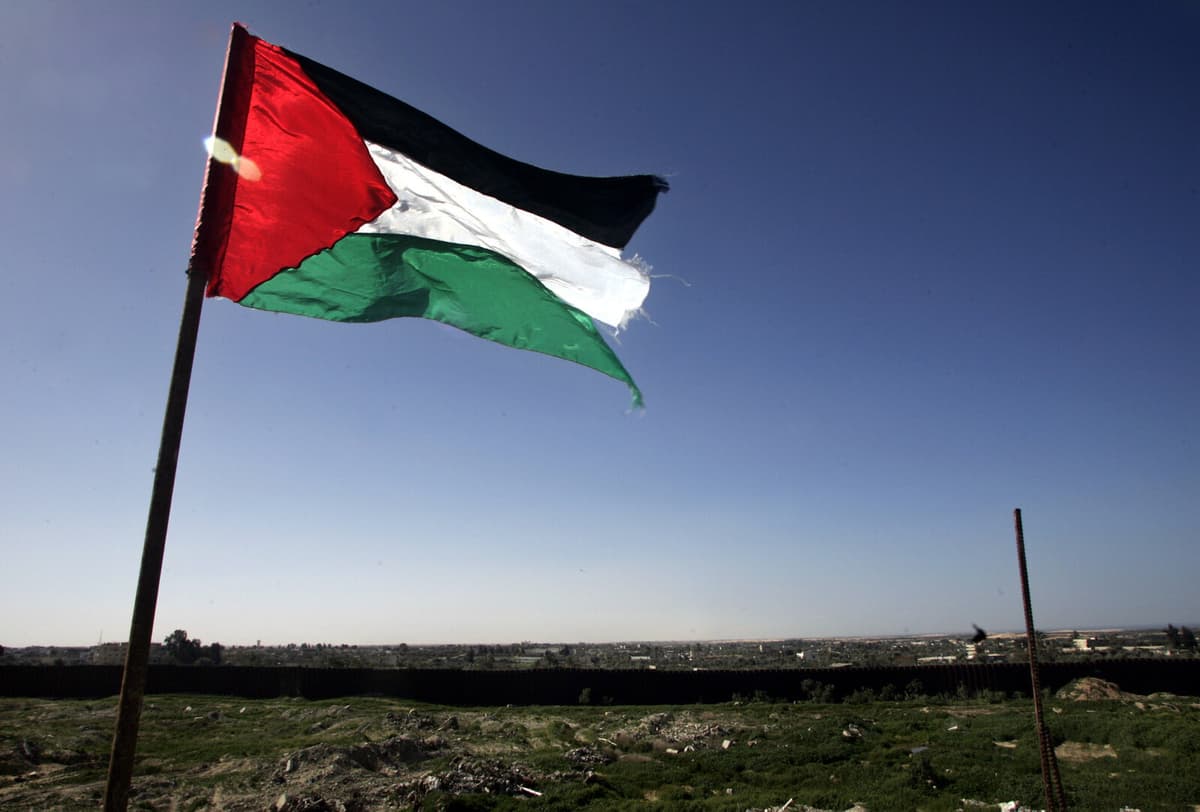Testimonies of famine and starvation from within Gaza are pouring in, and at the same time, voices are being raised from several quarters to recognize Palestine as a state. Said Mahmoudi, professor emeritus of international law at Stockholm University, believes that it is precisely the situation in the war-torn strip of land that makes more people open to recognition.
There is enormous pressure among the general public in many countries, he says and continues:
Even in countries that have traditionally been for Israel and have an understanding of Israel, there is outrage. People react to prevent a catastrophe from being completed, even if it has already begun.
France first
Among the major countries, France was the first. President Emmanuel Macron stated last week that the country will formally recognize Palestine as an independent state at the UN General Assembly in September. France would then become the first G7 country and the third among the permanent members of the UN Security Council to recognize a Palestinian state. Said Mahmoudi means that a French recognition would be very important politically. And it would weigh even heavier if the United Kingdom decided to go the same way.
It would raise Palestine's status, says Said Mahmoudi.
Diplomatic relations
Much of a recognition is formalities, but it would also mean diplomatic relations, where Palestine on the one hand and, for example, the United Kingdom on the other would have ambassadors in each other's countries. It would also mean that the law that exists at the international level includes both parties.
The United Kingdom has not gone as far as France. The country's Prime Minister Keir Starmer said in recent days that they are considering recognition, in an attempt to put pressure on Israel. But Said Mahmoudi does not believe that a British recognition of Palestine is imminent.
The United Kingdom has a special relationship with Israel, says Said Mahmoudi.
It was the country that proposed the two-state solution within the UN and proposed that a new, Jewish state be established. So this old, historical bond, it is part of the picture and the government in the United Kingdom must take it into account, he says.
Malin Carlsson/TT
Facts: UN countries that have recognized Palestine
TT
1988 Afghanistan, Albania, Algeria, Angola, Bahrain, Bangladesh, Belarus, Bhutan, Botswana, Brunei, Bulgaria, Burkina Faso, Burundi, Central African Republic, Cyprus, Djibouti, Egypt, United Arab Emirates, Gabon, Gambia, Ghana, Guinea, Guinea-Bissau, India, Indonesia, Iran, Iraq, Yemen, Jordan, Cambodia, Cape Verde, Comoros, China, Congo-Brazzaville, Congo-Kinshasa, Cuba, Kuwait, Laos, Libya, Madagascar, Malaysia, Maldives, Mali, Mauritania, Mauritius, Mongolia, Morocco, Mozambique, Namibia, Nepal, Nicaragua, Niger, Nigeria, North Korea, Oman, Pakistan, Poland, Qatar, Romania, Russia, São Tomé–Príncipe, Saudi Arabia, Senegal, Serbia, Seychelles, Sierra Leone, Slovakia, Somalia, Sri Lanka, Sudan, Tanzania, Chad, Czech Republic, Togo, Tunisia, Turkey, Uganda, Ukraine, Hungary, Vietnam, Zambia, Zimbabwe
1989 Benin, Ethiopia, Equatorial Guinea, Philippines, Kenya, Rwanda, Vanuatu
1991 Eswatini (Swaziland)
1992 Azerbaijan, Bosnia-Herzegovina, Georgia, Kazakhstan, Turkmenistan
1994 Tajikistan, Uzbekistan
1995 Kyrgyzstan, Papua New Guinea, South Africa
1998 Malawi
2004 East Timor
2006 Montenegro
2008 Costa Rica, Côte d'Ivoire, Lebanon
2009 Dominican Republic, Venezuela
2010 Argentina, Bolivia, Ecuador
2011 Antigua–Barbuda, Belize, Brazil, Chile, Dominica, El Salvador, Grenada, Guyana, Honduras, Iceland, Lesotho, Liberia, Paraguay, Peru, Saint Vincent and the Grenadines, Suriname, South Sudan, Syria, Uruguay
2012 Thailand
2013 Guatemala, Haiti
2014 Sweden
2015 Saint Lucia
2018 Colombia
2019 Saint Kitts and Nevis
2024 Armenia, Bahamas, Barbados, Ireland, Jamaica, Norway, Slovenia, Spain, Trinidad and Tobago
2025 Mexico
Note: Malta partially recognized a Palestinian state in 1988.






